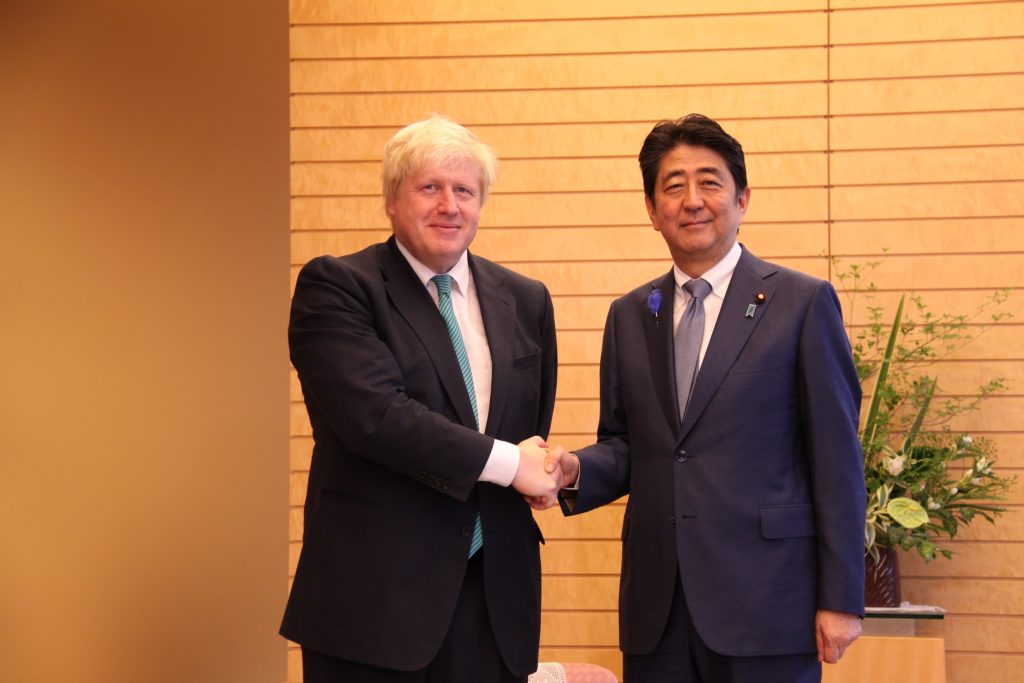The Peninsula
What do China, Japan, and the United Kingdom Have in Common?

By Mark Tokola
Paul-Henri Spaak, the post-war Belgian statesman who served both as one of the founders of the European Union and as Secretary-General of NATO, wrote in his memoirs that “one must also desire the consequences of what one desires.” In other words, you shouldn’t complain about the foreseeable outcomes of your actions. One of the striking features of the past few years is that disparate countries have made seemingly conscious decisions to take actions that clearly are not in their own economic interest in pursuit of other national objectives.
China’s economic retaliation against South Korea in reaction to its deployment of the THAAD anti-ballistic missile system, the United Kingdom’s “Brexit” decision to leave the European Union, and Japan’s restrictions on its own exports to South Korea were all foreseeably economically counterproductive—despite thin denials to the contrary—but all were done anyway as matters of national interest.
In the case of China’s actions against South Korea, it is fairly simple for authoritarian regimes to pull economic levers to execute foreign policy decisions. The Chinese government “inspections” of South Korean company Lotte’s stores in China were simply harassment to push them out of business. Concert organizers’ decisions to cancel the visit of Korean entertainers and the sudden evaporation of Chinese group tours to Korea were orchestrated by the government despite official claims that Chinese companies and tourists were simply making their own independent decisions. Such claims seem more ‘for the record,’ than to be taken seriously. The short-term effect was to damage South Korean economic interests, but the foreseeable consequence was that South Korean corporations are diversifying their operations to lessen their dependence on China and China’s reputation as a reliable place to invest has suffered damage. China calculated that its need to strike at South Korea was worth the long-term economic consequences.
In the case of Brexit, the consensus among British industry and economists is that the UK has benefitted greatly from being part of a common market along with its major trading partners. Although some “Brexiteers” argue that leaving the EU will “unleash the British economy” to pursue its own trading relationships and to make its own domestic regulations, they defensively argue at the same time that even if there was an economic cost to leaving the EU, it would be worth paying to claim more British sovereignty. Watching the years-long debate, it has been obvious that Brexit is not about economics. The UK has never been wholly comfortable operating within the EU institutional structure. The irritation of having to obey club rules, even though the UK had a large part in writing them, has always seemed to overshadow the benefits of club membership. The political—and perhaps psychic—benefits of Brexit have been judged (so far) by a democratic process to outweigh the economic costs that are already being felt within the UK.
No country has benefitted more from the rule and norms based international trading system than Japan. Its export-driven growth over the past seventy years has made it one of the world’s major economies. That made it all the more surprising when Japan announced restrictions on exports of three chemicals key to South Korea’s production of semiconductors. That was followed by the removal of South Korea from its “white list” of trusted trading partners. It is apparent that Japan acted out of frustration with South Korea’s colonial and wartime claims against Japan, particularly the South Korea Supreme Court’s decision at the end of 2018 that Korean forced laborers had the right to sue Japanese companies for unpaid wages. Setting aside the rights and wrongs of that issue, Japan’s actions are not in its economic self-interest. Japanese companies also use Korean semiconductors and displays. Making technology cooperation between Japan and Korea more difficult when both are facing the challenge from China is self-defeating. Nevertheless, the Japanese government determined that political considerations outweighed economic self-interest.
There have always been cases of countries subordinating economic interests in the face of pressing foreign policy requirements. Economic sanctions against South Africa, Cuba, Serbia, Russia, North Korea, and other countries have required the sanctioning countries to forego otherwise profitable trade. National interests came first. Countries have also maintained control of essential national infrastructure even at a commercial loss. What is new is that countries, including the United States, have expanded the sphere of what they consider national interests to include areas such as immigration policy, national pride, and the promotion of non-defense related manufacturing sectors. They have determined that those are pressing national requirements. The question is whether they are prepared to accept and openly admit to the foreseeable economic consequences.
Mark Tokola is the Vice President of the Korea Economic Institute of America. The views expressed here are his own.
Photo from UK in Japan-FCO’s photostream on flickr Creative Commons.
